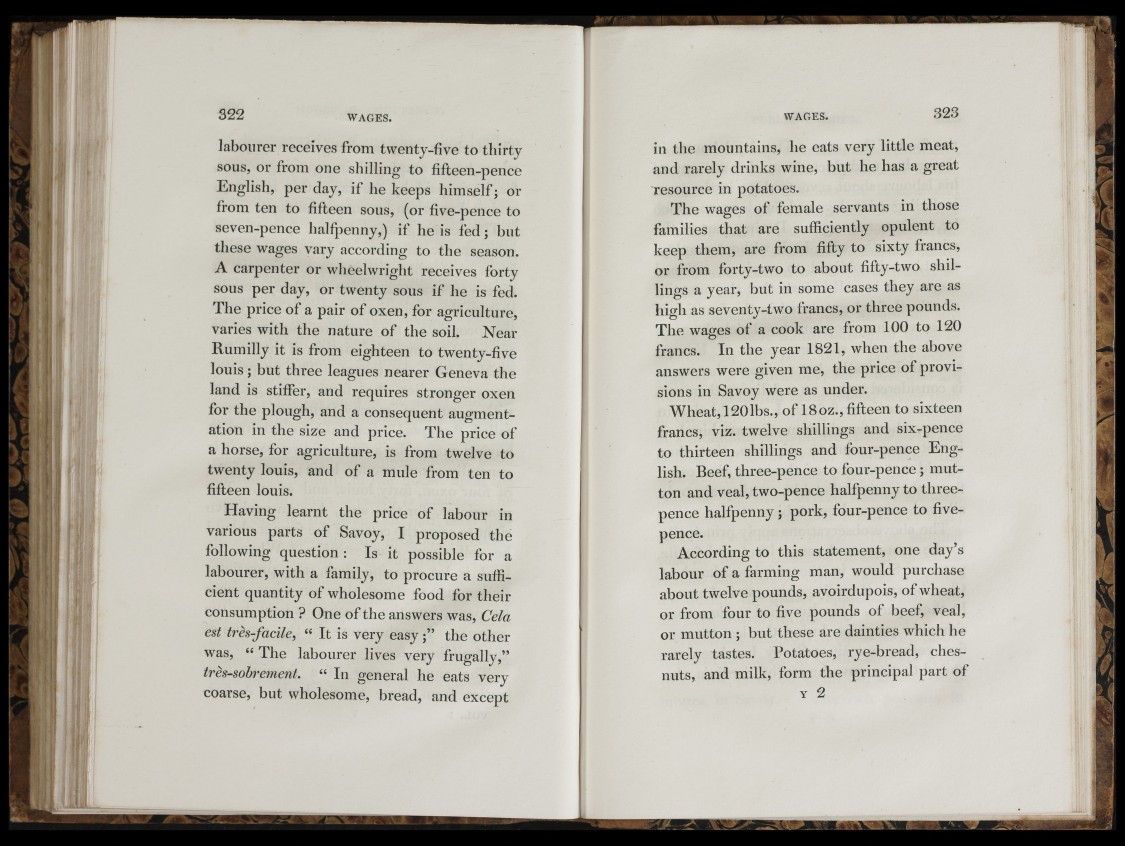
T
labourer receives from twenty-five to thirty
sous, or from one shilling to fifteen-pence
English, per day, if he keeps himself ; or
from ten to fifteen sous, (or five-pence to
seven-pence halfpenny,) if he is fed ; but
these wages vary according to the season.
A carpenter or wheelwright receives forty
sous per day, or twenty sous if he is fed.
The price of a pair of oxen, for agriculture,
varies with the nature of the soil. Near
Rumilly it is from eighteen to twenty-five
louis ; but three leagues nearer Geneva the
land is stiffer, and requires stronger oxen
for the plough, and a consequent augmentation
in the size and price. The price of
a horse, for agriculture, is from twelve to
twenty louis, and of a mule from ten to
fifteen louis.
Having learnt the price of labour in
various parts of Savoy, I proposed the
following question: Is it possible for a
labourer, with a family, to procure a sufficient
quantity of wholesome food for their
consumption ? One of the answers was. Cela
est très-facile, « It is very easy the other
was, “ The labourer lives very frugally,”
très-sobrement. “ In general he eats very
coarse, but wholesome, bread, and except
in the mountains, he eats very little meat,
and rarely drinks wine, but he has a great
resource in potatoes.
The wages of female servants in those
families that are sufficiently opulent to
keep them, are from fifty to sixty francs,
or from forty-two to about fifty-two shillings
a year, but in some cases they are as
high as seventy-two francs, or three pounds.
The wages of a cook are from 100 to 120
francs. In the year 1821, when the above
answers were given me, the price of provisions
in Savoy were as under.
Wheat, 120lbs., of 18oz., fifteen to sixteen
francs, viz. twelve shillings and six-pence
to thirteen shillings and four-pence English.
Beef, three-pence to four-pence; mutton
and veal, two-pence halfpenny to threepence
halfpenny ; pork, four-pence to five-
pence.
According to this statement, one day’s
labour of a farming man, would purchase
about twelve pounds, avoirdupois, of wheat,
or from four to five pounds of beef, veal,
or mutton ; but these are dainties which he
rarely tastes. Potatoes, rye-bread, ches-
nuts, and milk, form the principal part of
Y 2